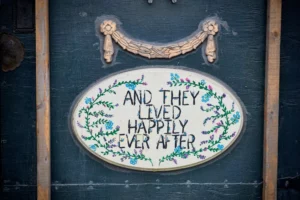Anyone who’s been in a romantic relationship very long knows that conflict comes with the territory. And constructively working through rough spots is one of the most important ongoing tasks in any long-term relationship, whether you’re dating, engaged or married.
These days, however, there’s a new conflict wrinkle that many couples are discovering they have to iron out: what they say about each other online. Wired, 21st-century couples increasingly have to navigate one another’s expectations about what they should — and shouldn’t — say about each other in front of a digital audience via social networking sites such as Facebook and Twitter, as well as in blogs (like this one) and discussion forums.
New York Times contributor Laura M. Holson tackled this new communication conundrum in her recent article, “‘What Were You Thinking?’ For Couples, New Source of Online Friction.” Holson writes,
Relationships are hard enough. But the rise of social media — where sharing private moments is encouraged, and provocative and confessional postings can help build a following — has created a new source of friction for couples: What is fair game for sharing with the world?
Holson observes that this new relational dynamic is one that married couples and those who’ve just begun dating alike both may have to deal with.
After a few relationship-testing episodes, some spouses have started insisting that their partners ask for approval before posting comments and photographs that include them. Couples are also talking through rules as early as the first date (a kind of social media prenup). Even tweeting about something as seemingly innocent as a house repair can become a lesson in boundary-setting.
She also quotes Lee Raine, director of the Pew Research Center’s Internet and American Life Project, who adds,
There is a standard negotiation that takes place in a lot of relationships, but now there are multiple audiences watching. There will be awkward moments, even more so if that negotiation is played out in public.
Holson interviewed more than a dozen couples and found that arguments over what’s OK to post online — and what’s not — were fairly frequent. Michigan State doctoral student Rebecca Gray, who lives with her boyfriend Ernest Whiting, recently feuded over a picture he posted on Facebook of her wearing a mud mask with her eyes closed and mouth open.
Not only was it something she didn’t want posted for the world to see, it was an image he retrieved from her computer. “My jaw dropped,” Gray said of the moment she discovered the picture online. “I tried to remove it, but I could only untag.” By the time she asked Whiting to remove it, others had seen and commented on it. “It was showing up in my newsfeed,” she said. “People said, ‘What is this? It is hilarious!” Gray didn’t feel the same way, and she told her boyfriend, “You have lost the privilege of using my computer. What were you thinking?”
And while you might think such gaffes wouldn’t happen very often, Holson’s summaries of several other similar stories suggests this new relationship pitfall is actually pretty common.
My wife, Jennifer, and I began to get serious in our dating relationship before the social media revolution. But I clearly remember a conversation that’s applicable to this subject.
Jennifer is an associate pastor at our large Presbyterian church in Colorado Springs. It’s the church where she grew up — which means she has relational connections with literally thousands of people that stretch back four decades. She’s also an introvert and a fairly private person, whereas I’m sort of a loose-cannon extrovert who’s prone to air out pretty personal stuff without too much forethought.
Recognizing those differences, she said to me at one point, “You just need to realize that everything you say and do reflects on me, too.” (That’s true of every marriage, by the way, but it’s especially the case when one spouse is in a public position.) Jennifer’s words were sobering to me, and they helped me to see things from a new perspective.
My wife’s counsel is worth keeping in mind when we’re tempted to fire off a casual criticism or say something sarcastic about our significant other in front of an online audience. At the most basic level, we need to ask ourselves in these moments, “Am I really seeking to honor my partner?” In addition to that overarching question, here are several more we can ask ourselves to help us evaluate our motives in this area.
- Why do I want to say something negative about my spouse/fiancé(e)/dating partner?
- Am I passive-aggressively venting something that would be better worked out in private?
- Am I writing something that tries to make me look good at my partner’s expense? If so, why?
- Is there any way that what I’m writing or sharing might embarrass him or her?
I agree with Holson’s premise that social media could be a new arena of conflict, one that needs to be negotiated together. That said, I think a little bit of common sense, combined with a commitment to esteem those we love, can probably go a long way toward heading off embarrassing online gaffes before they occur.
Now, I need to go find my wife and have her take a look at this post before it’s published …











